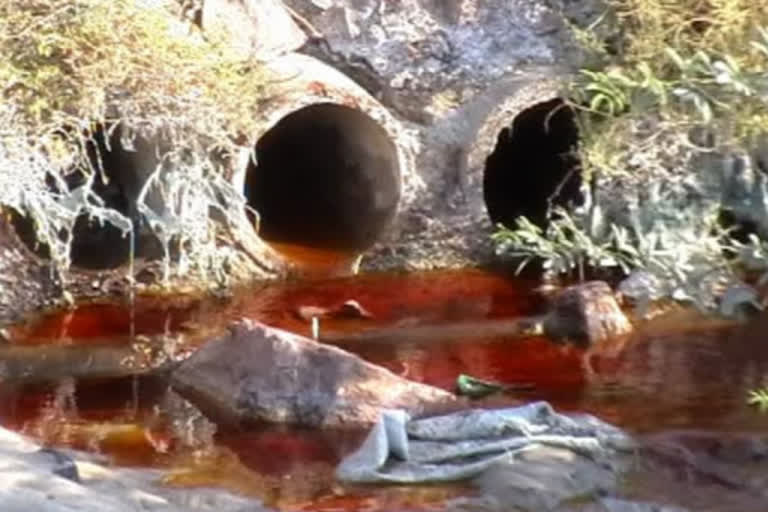Hyderabad: India is a country facing an acute water crisis, as water in almost half of our rivers is not fit for drinking. To make matters worse, ponds, lakes, and even our groundwater is now polluted.
Within the metropolitan area of Hyderabad, industrial and chemical waste has been issuing a death sentence to around 185 water bodies. Although the water and air quality has relatively improved during the lockdown, the release of waste silently into our water bodies is carrying on. Tons of chemical waste is being poured into all the water sources, including Hussain Sagar, on which the government has already spent over Rs 400 crore in the name of purging.
The Telangana High Court accused authorities of sleeping on the issue of illegal encroachments and construction of houses in the water bodies, and recently commented whether the government would like to convert 'Hyderabad to Jaisalmer.'
But that is not all. Recently, the death of hundreds of ducks in the 'Munneru Vagu' created an uproar. Even in the past, there have been in-depth articles on the role of chemical waste, such as chloromethane, in the wake of large-scale pile-up of dead fish in Gandigudem and Gaddi Potaram Pedda Cheruvu. Field-level analyses further confirm that the situation is still far from improving.
However, this is not a problem confined to one region alone. A study by the organisation 'Water Aid' reveals that 80 per cent of surface waters in the country have been contaminated, which shows the severity of the situation.
In the 1960s, the city of Bengaluru was flourishing with over 260 lakes. Sadly, only 10 lakes remain in the city today. Similarly, Ahmedabad with 137 water pools two decades ago, lost half of them by 2012 with encroachments and constructions. It is estimated that over the past twelve years, water sources in more than 3200 hectares of area in the city have disappeared.
Read: It's kind of war, need to keep corona warriors happy: SC on doctors' salary
Over the past six decades, about 800 ponds and lakes in the Patna district of Bihar have been invaded. Statistics show that 73 per cent of water resources in Kerala, nicknamed ‘Jalasiri,’ are contaminated.
As the number of aquifers continues to shrink - even the remaining ones are choking with untreated toxic chemicals and hazardous waste released by industries flouting all the rules.
According to science professors like Dr. Ramachandra Prabhupada and others of the Indian Institute of Science, if immediate corrective measures are not taken, the nation will lose even the limited water resources available.
Government think tank Niti Ayog has declared that over 60 crore people in the country are already experiencing severe water shortages. Due to contamination of more than three-fourth of water resources, two lakh people are losing lives annually.
Though mankind has achieved a lot and can now create miracles through science, it still cannot create water. At a time when each drop of water endowed by nature has to be used properly, wasting limited water resources is no less than suicidal.
Contamination of our most valuable resource is a severe crime and deserves maximum punishment. Only when the central and state governments succeed in reforming the rules and implementing good standards of water management, will the people's right to live will be safe.
Read: 'Obese people face mental, physical problems in corona times'



